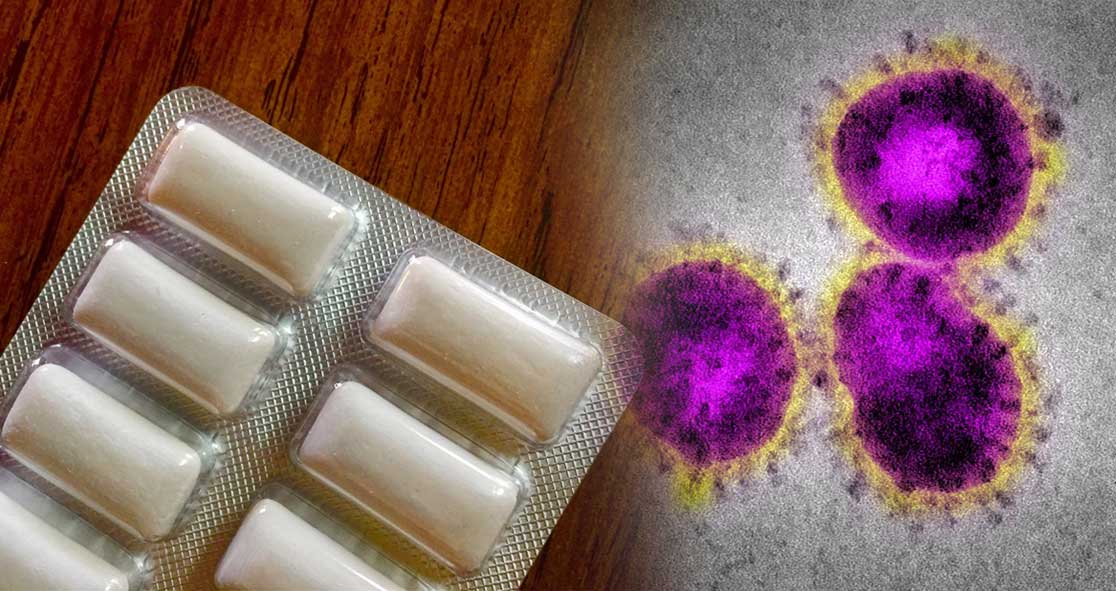A new study, published in the journal Molecular Therapy, has found that a plant-based chewing gum serves as a “trap” for the coronavirus, according to Medical Xpress.
The chewing gum can help reduce the viral load in saliva and potentially tamp down SARS-CoV-2 transmission.
The study, led by Dr. Henry Daniell at Penn’s School of Dental Medicine, could help develop a low-cost tool to curb the COVID pandemic. The study was performed in associated with researchers at the Perelman School of Medicine and School of Veterinary Medicine, as well as at The Wistar Institute and Fraunhofer USA.
Dr. Daniell said, “SARS-CoV-2 replicates in the salivary glands, and we know that when someone who is infected sneezes, coughs, or speaks some of that virus can be expelled and reach others. This gum offers an opportunity to neutralize the virus in the saliva, giving us a simple way to possibly cut down on a source of disease transmission.”
Vaccines are helping but have not stamped out transmission. Some people who are fully vaccinated are still getting infected with the virus. And some of those can carry a viral load similar to those who are unvaccinated, according to recent research.
Meanwhile, Dr. Daniell has been involved in research to develop a chewing gum infused with plant-based proteins to disrupt dental plaque. And pairing his insights, he wondered if such a gum, infused with plant-grown ACE2 proteins, could neutralize the coronavirus in the oral cavity.
Dr. Daniell reached out to virologist Dr. Ronald Collman who had been collecting blood, nasal swabs, saliva, and other biospecimens from COVID patients for scientific research since the early stages of the pandemic.
Dr. Collman said, “Henry contacted me and asked if we had samples to test his approach, what kind of samples would be appropriate to test, and whether we could internally validate the level of SARS-CoV-2 virus in the saliva samples. That led to a cross-school collaboration building on our microbiome studies.”
The researchers exposed saliva samples from COVID patients to the ACE2 chewing gum and found that levels of viral RNA fell so dramatically to be almost undetectable, according to Medical Xpress.
The team is now working toward obtaining permission from the FDA to conduct human trials to evaluate whether the chewing gum approach is safe and effective in people with COVID infection.
Dr. Collman said, “Henry’s approach of making the proteins in plants and using them orally is inexpensive, hopefully scalable; it really is clever.”
“We are already using masks and other physical barriers to reduce the chance of transmission,” Dr. Daniell explained. “This gum could be used as an additional tool in that fight.”























